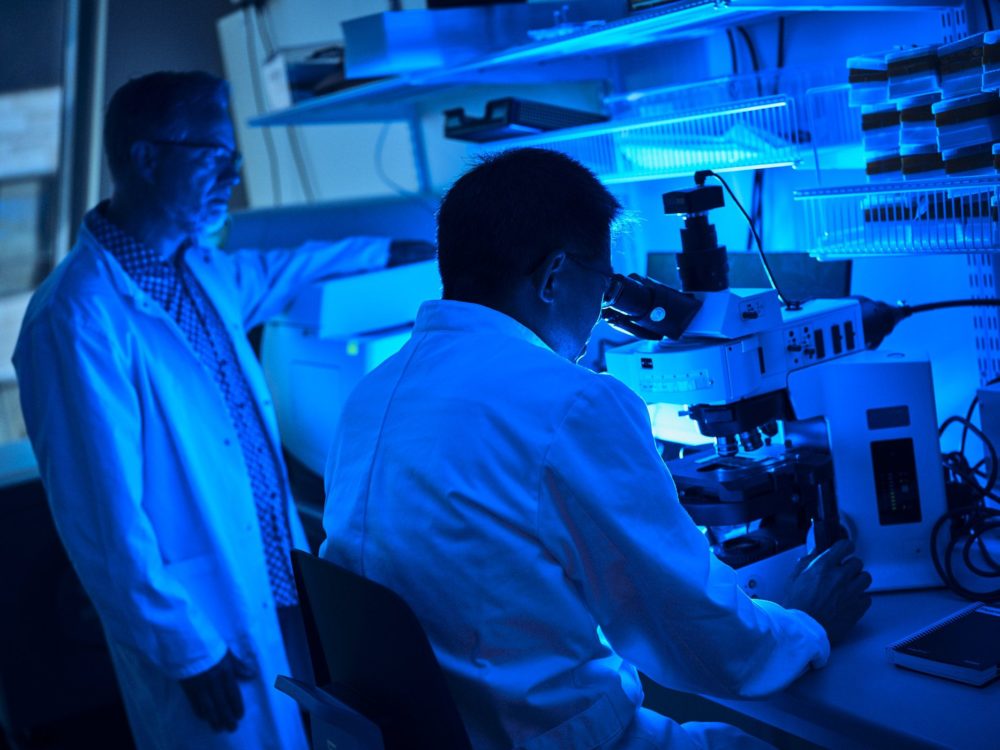As with terrestrial livestock, pests and diseases can wreak havoc on fish farms. But some of today’s aquatic chemical treatments, which are often toxic and non-degradable, bring wider environmental and food safety headaches. Besides that, pathogens are adapting to withstand some of these chemical onslaughts.
The blue-sea thinking of Sundew, a Dutch-Danish biotech startup, is that these trends have created a perfect storm for biological alternative treatments that are effective, affordable, and environmentally benign.
Formed in 2018, Sundew quickly snapped up some core intellectual property developed at the Netherlands Institute of Ecology and the University of Copenhagen‘s Department of Veterinary and Animal Sciences for the EU Horizon 2020 ParaFishControl project.
The question now is whether the team can take some of these academic findings and turn them into something commercially viable. Its first product in the works is a biological treatment for outbreaks of ‘Ich’ (lchthyophthirius multifiliis, a parasite that causes fish white spot disease.)
Ich affects freshwater fish, including seven of the 11 most important finfish aquaculture species – including carp, tilapia, and catfish. It’s also a problem for many well-known ornamental species that are found in aquariums or ponds, or are kept as pets – a market where higher price points could present an opportunity for Sundew.
The company has found buy-in from the global pharma giant Novo Nordisk, which has just invested $1.6 million of seed funding via its foundation’s BioInnovation Institute (BII).
Dutch agrifoodtech accelerator StartLife has also committed around $100,000.
Making trout less icky
The funding follows a $1 million tranche from Grønt Udviklings- og Demonstrationsprogram (GUDP), a ‘green’ fund run by the Danish government, which was allocated earlier this year. That grant is for Sundew to develop its Ich product for trout farms, where the parasite is a major seasonal problem.
“It is an extract from a naturally occurring bacteria,” says Sundew’s cofounder and veteran biotech entrepreneur Andy Gardiner, describing the technology that will hopefully keep those trout free of white spots.
“The research has so far all been done in labs,” he told AFN. “The essence of it is that it kills the parasite within hours. Then it breaks down into ecologically harmless components.”
Faroese startup Ocean Rainforest, which is working on sustainable seaweed and fish farming, recently netted $1.5m in a WWF-led round. Read more here
He played down the prospect of wider near-term deployment, as currently the product can only be made in small quantities and still needs testing on pilot farms. But he did note that much of the Sundew team has been drawn from former executives at Swiss biological ingredients firm Evolva, so it’s used to commercializing deep science for the food industry and elsewhere.
Christian Brix Tillegreen, who is a senior business developer at Novo Nordisk’s BioInnovation Institute (BII), is tasked with being what he calls “an anchor” to Sundew as part of the funding deal. BII will be providing incubator services to the startup, which he said had shown early signs of being able to drive down costs.
Tillegreen added that Asia could be a major market or testing ground for Sundew to aim at, given the scale of aquaculture operations there and the large existing market for ornamental fish.
Any aquaculture tech tips? Drop a note to [email protected]




